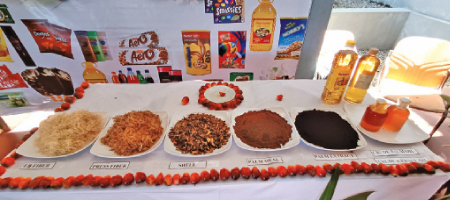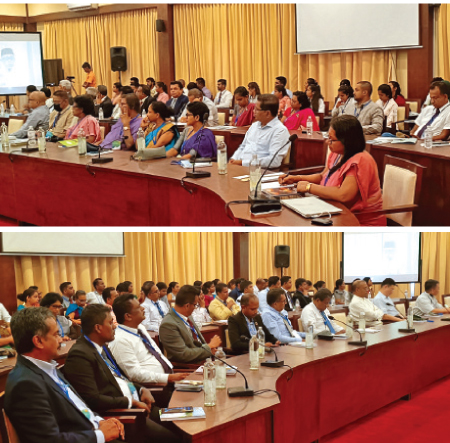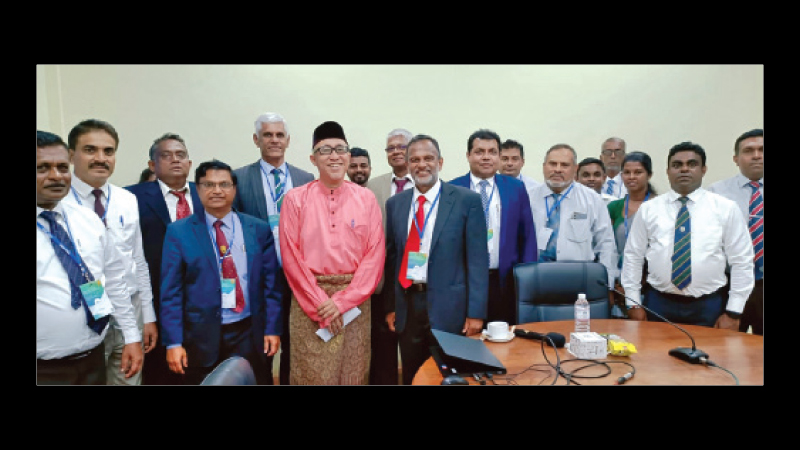Sri Lanka should aim to move away from being a palm oil importing country and become an exporter, said High Commissioner of Malaysia to Sri Lanka and the Maldives, Badli Hisham bin Adam.
He was speaking at an international symposium on Agriculture and Environment organised by the Ruhuna University in Matara on Friday.
He said that Government of Malaysia had observed the growth of palm oil production in Indonesia which grew from being a small producer to become the biggest exporter in the world.
“We helped Indonesia in a big way for them to achieve this endeavour and like to offer the same assistance to Sri Lanka,” the Envoy said.

Some of the byproducts of palm oil
He said that they are ready to take a Sri Lankan delegation to Malaysia and show them the oil palm plantations and prove that there are no adverse environmental issues by growing oil palm.
He said that following Malaysia and Indonesia, today India is a major grower of oil palm and if there are environmental constraints would they have moved into plantation of oil palm? “India is planning to grow oil palm in around two million hectares of land.”
He said that they are also ready to send palm oil experts to Sri Lanka to impart knowledge.
“We have also highlighted the advantages of growing palm oil to Ppresident Ranil Wickemesinghe Prime Minister Dinesh Gunawardena who are keen to to lift the oil palm plantation ban.

Some of the participants at the symposium Pix: Shirajiv Sirimane
He said that Malaysia earns around USD 15 billion revenue from palm oil exports and contributes around 7% to GDP. He said he also a palm oil planter in Malaysia gets a decent income. “However, farmers who have around 50 acres are seen driving in BMWs or Mercedes Benz and living luxurious lives.”
Yasith de Silva of the Palm Oil Association of Sri Lanka said that currently Sri Lanka has around 11,000 hectares and if the Government gives permission to grow oil palm on 50,000 acres, Sri Lanka can be self sufficient in palm oil in three years which will help to save around USD 300 million in edible oil imports annually.
He also said that oil palm had been cultivated in Sri Lanka for over 50 years and there have been no environment impact at all.
The High Commissioner said that it is not the politicians that are to be blamed for this ban but non-scientific environmentalists who pressurised the Government to implement this ban.
It was also disclosed that from the point of view of a small time grower, he or she could earn more than all other cash crops currently available in Sri Lanka.
“Hence allowing farmers to grow palm oil in rural areas will help them a high earning option and help eradicate poverty,” he said.
The event was initiated by Senior Lecturer, Faculty of Agriculture, Ruhuna University, I. T. Palihhakkra.
Harith Derana Foundation

Nimal Wijesinghe
President Haritha Derana Foundation, Nimal Wijesinghe said that their association was formed to look after the interesis of the SME oil palm sector.
“Today we have 50 farmers growing oil palm in around 200 acres and there are 3,000 more who wish to get involved in planting oil palm. If you permit us to plant we don’t need ‘Aswasuma’ or any other similar government handouts.”






